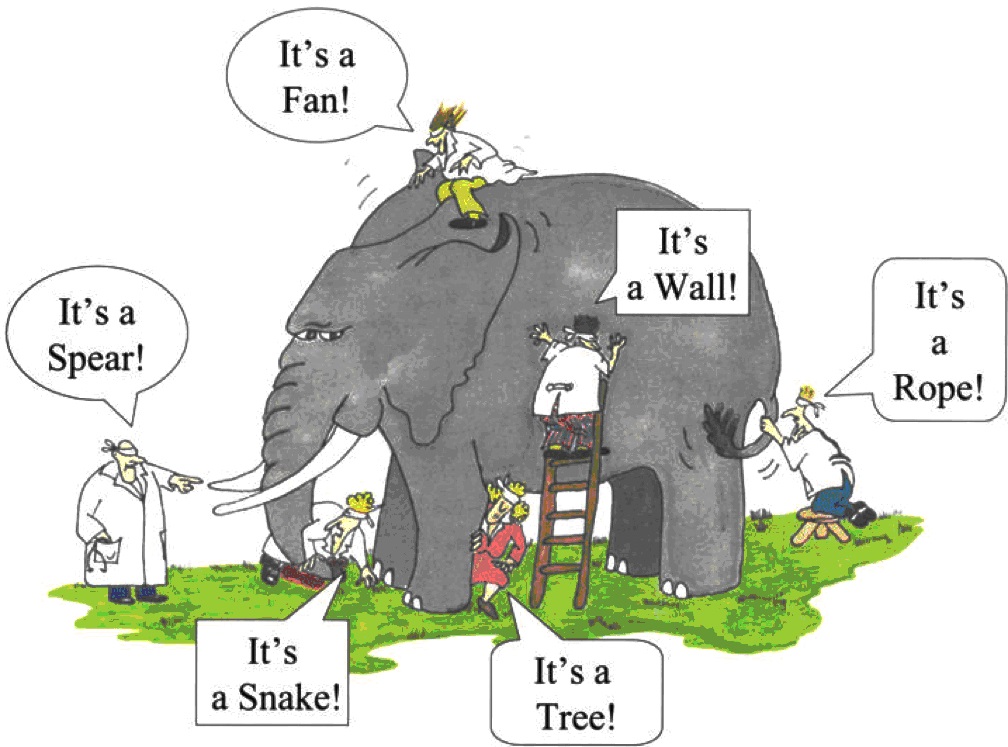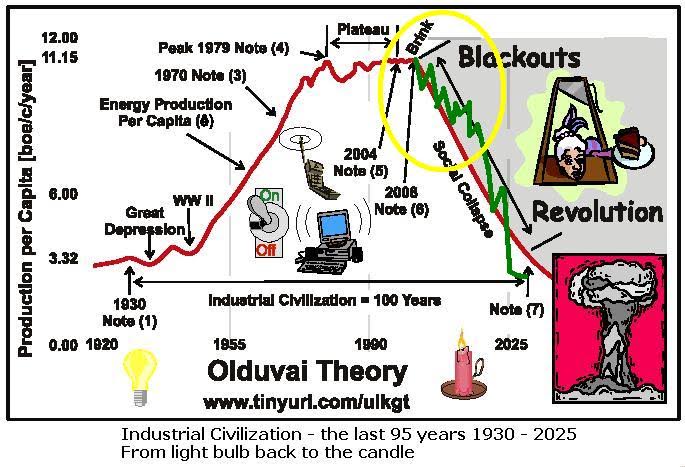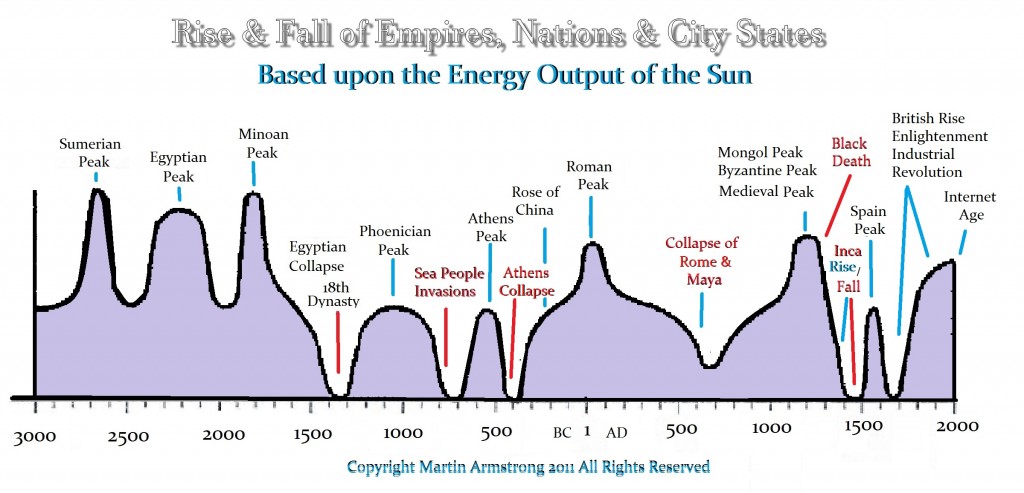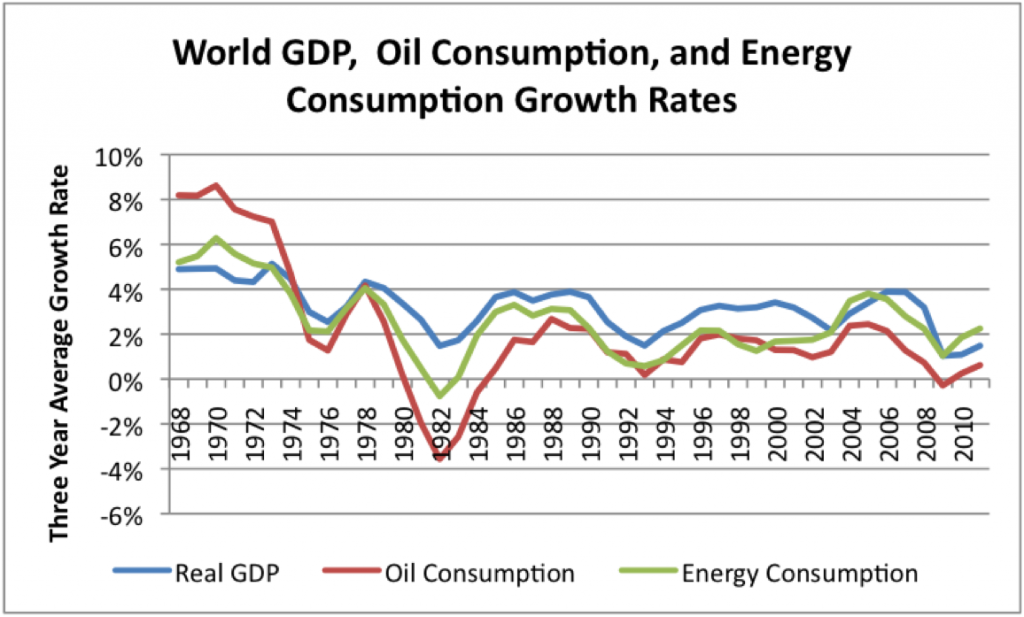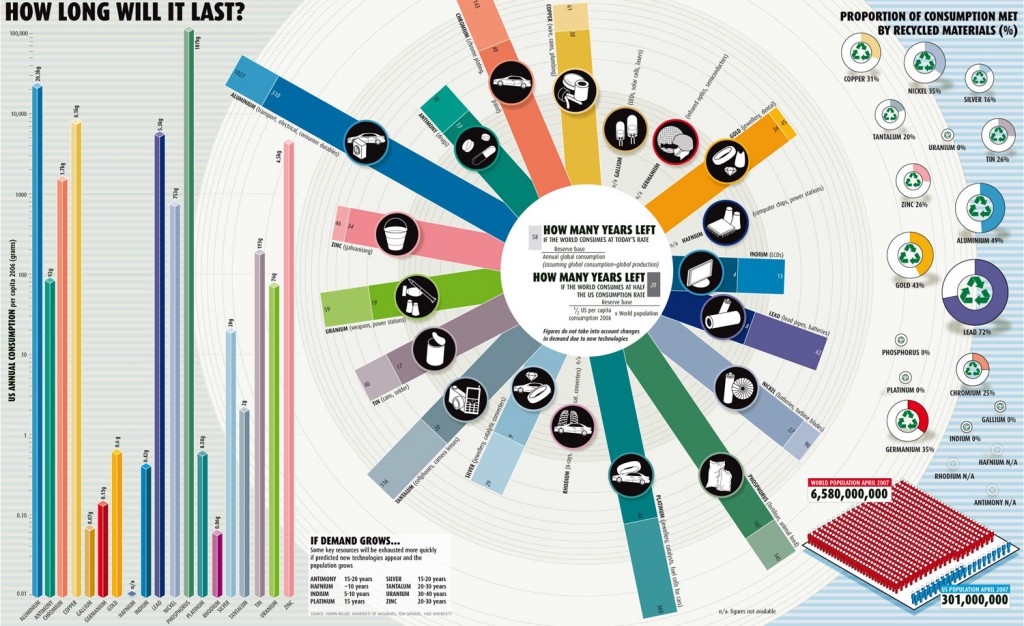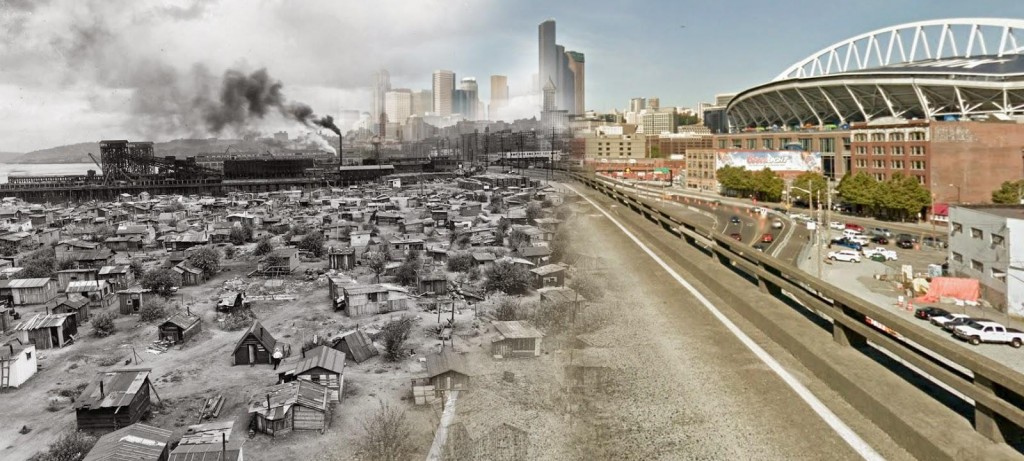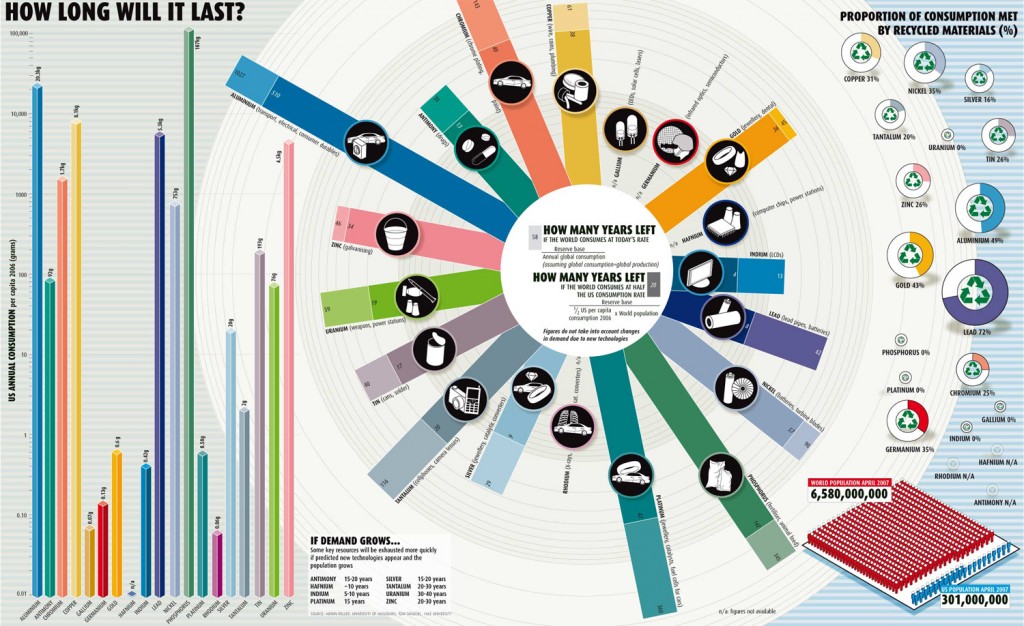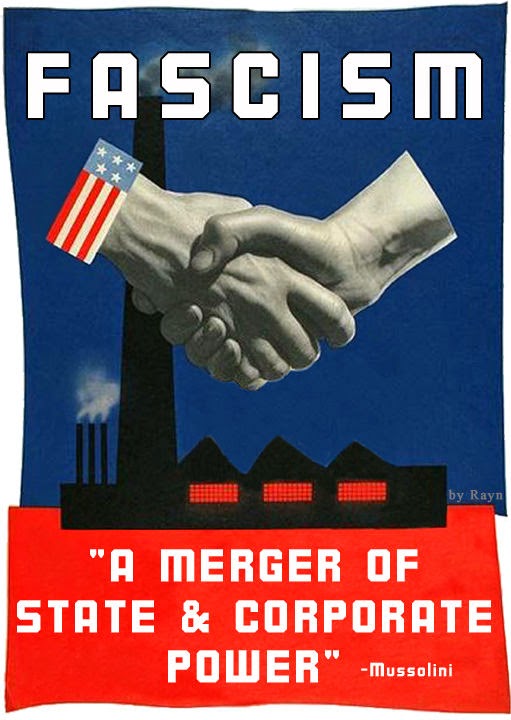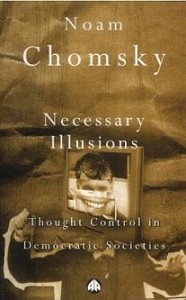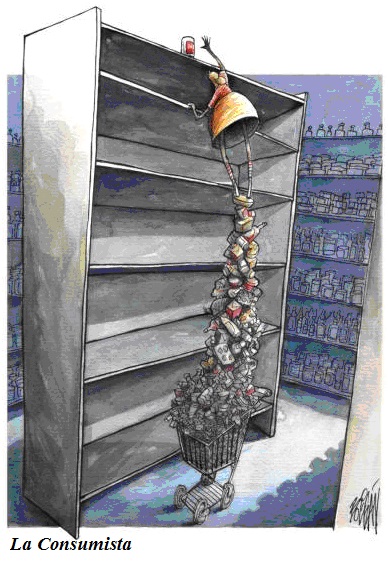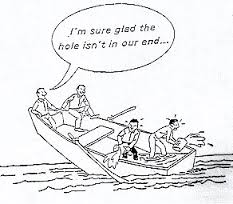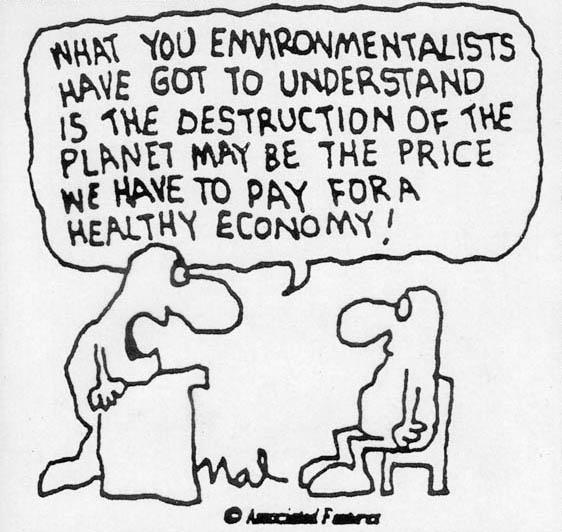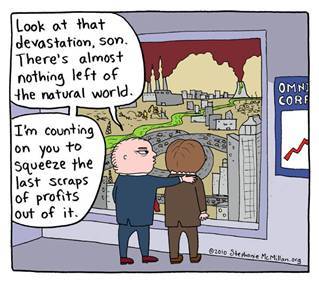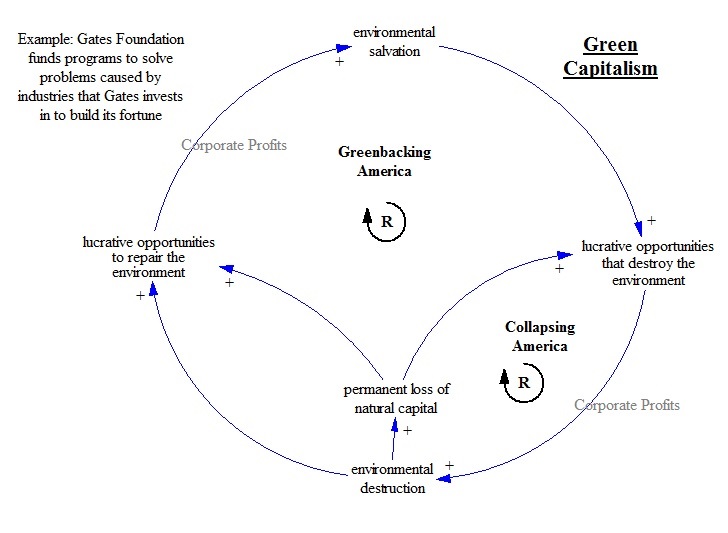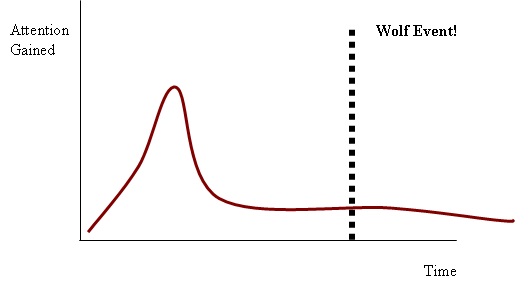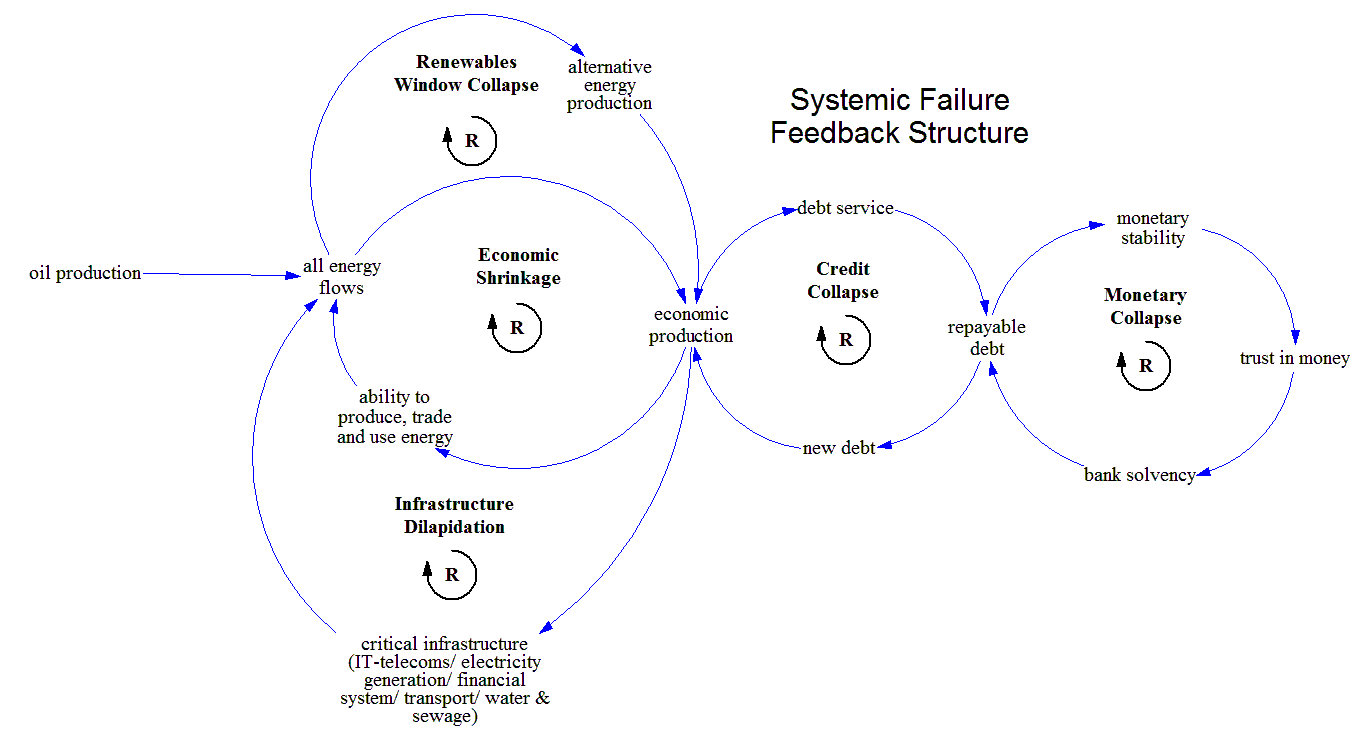Reality 101: Some Notes on Teaching Humanity’s Predicament
By Karl North | September 10, 2016
Our species faces a predicament: the inevitable decline of industrial civilization as we know it, and possible extinction. Decades ago, a small but growing group became aware of the situation and began to create ways to communicate it to the general public. An ‘energy descent’ literature appeared that has described it using terms like overshoot (Catton), the limits to growth (Meadows et al), a long emergency (Kunstler), catabolic collapse (Greer), die-off (Hanson) and peak everything (Heinberg), just to name a few. They faced a mass media which did not consider the news fit to print, and a public who so far has denied it outright.
Gradually most of the group recognized their effective quarantine as The Cassandra Complex. Cassandra was the legendary daughter of the king of Troy who warned her father not to allow the Trojan horse into the besieged city. She was under a double curse: that she always had to tell the truth, and that no one would ever believe her.
Still, some of the group who understand the situation continue trying to find ways to break through the denial and provide enough explanation of how the world really works so that those who can handle the information might begin to adapt their lives. One example is a set of talks by Chris Martenson, The Crash Course. My essay takes its title from one of the more ambitious and comprehensive results, a college course designed and taught by Nate Hagens.
These educational efforts generally have two main themes. One is an explanation of the biophysical system in which our species exists, and how our violation of its rules is creating the predicament. This theme often includes a segment on evolutionary biology and psychology that tries to explain humanity’s predicament behaviorally mainly in those terms. The second theme is an analysis of the present organization of humanity as a globalized capitalist system, an analysis that explains the ability of the system to persist in a pathway of self-destruction while keeping most people in the dark.
Because the members of the initial group who became aware of the predicament were and still are mostly people trained in the biophysical sciences, there now exists a large literature that explains that aspect of the predicament. Their attempts to explain the role of the present social system in causing the predicament have not been as accurate or successful, in my view, for a couple of reasons.
One is the historical antagonism between physical scientists and social scientists. The former have questioned the scientific status of social science, going so far at times as to describe all behavioral science as nothing but noise. Margaret Thatcher epitomized this view when she said that society does not exist. Ideologically in line with her capitalist handlers, she meant that our species will prosper as a collection of individuals each pursuing his/her self-interest, and has no need for theories or analysis of society as such.
In reaction to their detractors in the physical sciences, many social scientists have tried to give their discipline independent status by ignoring biophysical realities in their research. C. P. Snow’s The Two Cultures, written half a century ago, summarized the antagonism, coming down heavily on the side of physical science, and kicking off a debate that continues to this day. Many who write accurately on the energy crisis retain residual loyalty to their training in reductionist science despite its inability to cope with the interconnected nature of the universe as we know it. They therefore tend not to take too seriously anything that can’t be empirically demonstrated by reductive methods.
The second reason that the presentation of systemic social analysis has not been as successful is the subversive nature of critical social science. Ruling strata have therefore traditionally demonized it, penalizing and marginalizing its producers, and making their writings easy to ignore even by highly educated publics.
While far from the whole story, one area of social organization that energy descent educators have singled out for special treatment and covered well is the role of money, finance and debt under capitalism. Understanding how financial structures and forces are combining to bring down the capitalist political economy is important in exposing the deep delusions of most of the public about these things and helping people to project alternative scenarios of social organization for the era of transition. Writers who are renegades from careers in finance have been particularly effective in this area (Chris Martenson, Paul Craig Roberts, Michael Hudson, Charles Hugh Smith, Nate Hagens). As these writers document, the policy of using interest bearing debt to enable capital investment, while not unique to capitalism, is intrinsic to capitalism as a system, and is essential for an understanding of the impetus to endless growth in our economy.
Without attempting a full-blown treatment, these notes will point out elements that critical social science reveals about our society as a system, which I argue that younger generations need to know to better confront the industrial melt-down that lies ahead.
A political economy of capitalism
If we are to have any chance of coping with such an unprecedented turning point in human history, we need to know how our current social system really works, how it contributed to the predicament, and how it will react to melt-down and to attempts to transition to a different social order. That is, we need a knowledge of its political economy. By ‘political economy’ I mean more than a study of the interaction of wealth and decision making power. I mean a systemic analysis of a society as a totality encompassing all its social institutions and its distinctive culture, grounded in an understanding of its structure of power relations and the many forms in which power is exercised. I am using the term political economy as shorthand for this more comprehensive framework of inquiry. In the nascent social science of the 19th century, social analysts of all political persuasions called themselves political economists.
The structure of power
Among the important insights that critical social science reveals is that the process of concentration of wealth and power in a minority is built-in to capitalism. Most people are aware of rising inequality, but surveys show that the public seriously underestimates the present concentration of power, and is therefore far too optimistic about the potential of political action to change anything at the level of nation states. Partly this is because of what Sheldon Wolin called inverse totalitarianism, the ability in modern states of ruling strata to avoid the direct exercise of power, remain in the background, and rule indirectly through control of the main social institutions: government, economic system, mainstream media, and the science establishment.
The manufacture of consent
Also important, our rulers have used powerful tools of propaganda to indoctrinate and successfully manufacture consent to their rule and unending desire for capitalism’s products – a deeply embedded culture of capitalism. The overwhelming growth and triumph of the propaganda industry over the last century got a boost when a kinsman of Freud, Edward Bernays, brought Freud’s insights on unconscious desires to the US and created the advertising industry. Bernays went on to show the powerful minority how to use propaganda to manipulate the collective consciousness, calling it ‘public relations’ and schooling them in a cardinal rule of propaganda: always use language that diverts attention from unpleasant realities.
Ruling strata have successfully created false narratives around all major institutions to hide who rules America. As I wrote elsewhere,
Since the beginning of the republic, US elites have found in the language of freedom a magnificent weapon of mass deception. “Let Freedom Ring!” the siren song sang out. Pandering to both libertarian Republicans and liberal Democrats, the powers that be offered different conceptions of what ‘free’ means, all of which on deeper analysis ring hollow. ‘Free speech’, ‘free press’, ‘free elections’, ‘free enterprise’, ‘free competition’, ‘free market’, ‘free trade’, ‘free world’ and the like were all peddled to a population that got only a show window view, a shallow misrepresentation of how these policies work out over time in a society where from the outset wealth and power have been concentrated in few hands. As in The Emperor’s New Clothes folktale, it is important to defrock and to deconstruct this language in the light of what has happened historically in our society in the guise of freedom.
What does a closer look at freedom in our society reveal? The main deceptive device in the language of freedom is to focus on individual freedom in the short run and to hide the inevitable consequences over time in which a few that have the means, unless thwarted, capture the means to control the lives of the many. Thus unrestricted freedom ends in loss of freedom. Speech that functions properly to promote the public good turns out to be not free but expensive, and thus becomes the privilege of the wealthy minority who use it to indoctrinate the rest of us. Enterprise appears free until one’s enterprise is subjected to the inevitable hostile takeover by the powerful interests that exert monopoly power in most sectors of our so-called free market economy and reduce most people to wage slavery. Trade is not usually free, but favors the more powerful, imperial player, and so locks lesser economies into underdevelopment. Elections are not free but won by the candidate with the most funding. Academics, particularly in the applied sciences, know well that the price of academic freedom to criticize corporate power is institutional marginalization and the end of funding for their research.
Thus knowledge of the political economy of capitalism can offer eager students of the energy descent powerful analytical thinking tools to see through the fabric of fairy tales that propagandists are constantly fine-tuning. They tailor different versions to specific publics all along the political spectrum from techno-fundamentalism to Christian fundamentalism. Hence they persuade conservatives that government is the problem – when it is really only the agent of a powerful class, and they convince liberals that government would serve the people if there were just a little more regulatory red tape.
An extensive literature on the manufacture of consent and many other areas of political economy neatly exposes all these false narratives, and awaits energy descent writers who are willing to share its important insights on how our social system really works. An example of my own writing along these lines is The Alchemy of Language in the Pacification of the American People.
Keeping the system going beyond its demise date
Another reason to share the revelations of political economy that expose its false narratives is to help people see how ruling strata have created crutches that mask evidence of the energy descent that began decades ago, props that make the present situation more brittle and crisis prone, and will cause more distress as those chickens come home to roost . Here is a list of some of these, covered well in the literature:
- The expansion of credit to keep consumption going, thus mortgaging the future with debt at all levels of society.
- Financialization of the economy, anticipated decades ago in a major work of Marxian political economy, Baran and Sweezy’s Monopoly Capital. The endless bailouts to prop up debt-ridden financial institutions.
- Offshoring of the US industrial economy. The result:
Cheap imports based on cheap foreign labor and unregulated raw materials extraction slowed the decline in US standard of living and actually increased wealth greatly in the US financial class. However, because US production for export declined, one result has been a ballooning trade deficit, which we paid for again by artificial means: the printing and sale of federal treasury bonds not backed by the production of real wealth.
4. Increasing reliance on the weapons industry to soften economic stagnation. As I have said elsewhere,
The weapons industry – one of our economy’s few remaining profit engines – is still helping to provide a semblance of normality in the US economy and keep public discontent from spilling over into revolt. Because the weapons industry depends on constant warfare to market and consume its ‘products’, US foreign policy is driven toward serial wars, partly to sustain the ‘health’ of this prop for an otherwise stagnant economy. But because a trillion dollar federal budget for warfare displaces the funding needed for social services – especially in a failing economy – the end result is the same: rising discontent.
5. Ignoring infrastructure dilapidation: utilities, transport, essential medical and educational institutions etc., to maintain a semblance of system solvency.
To begin to explain the above constellation of policy choices, one needs an operational knowledge of our political economy – how it is organized to insist on profit maximization at any cost. Taken as a whole, this policy pattern suggests that ruling strata have little allegiance to nations in which they happen to have residence. Rather, they use national armies and diplomatic muscle to protect their interests.
The costs of life in the system
Energy descent educators need to reveal the costs, the trade-offs inherent in capitalism’s ability to generate the vaunted material benefits of The American Way of Life. They need to draw on the copious literature in this area. Examples in the early wave of criticism in the 1950s-60s include works on planned obsolescence like Vance Packard’s The Waste Makers and the literature of cultural alienation, exemplified by Marcuse’s One Dimensional Man and exposés of the emptiness of middle class suburban life like C. Wright Mills’ White Collar. More recently, Kunstler’s The End of Suburbia: Oil Depletion and the Collapse of The American Dream identifies suburban sprawl as a product of the cheap energy era and attacks it both for its immense waste of natural resources and its spiritual and social emptiness. Other costs like the destruction of family and community and the loss of quality of life from living in an environment where pollution is inescapable in air water and food are well described in the literature as derivatives of the capitalist political economy.
In conclusion, educators who wish to school audiences in Reality 101 – to reveal the real world behind the veil of false narratives and misunderstood status of biophysical resources, to describe the present unique situation in human history and to prepare them for some sort of adaptation to the post-petroleum era – need to provide powerful tools for understanding how the world works, both the biophysical systems in which society is immersed and the peculiar political economy of capitalism that locks society into a self-destructive path.
Topics: Social Futures, Peak Oil, Relocalization, Uncategorized | No Comments » |
The struggle to integrate social and ecological science: its critical importance to the future of human society
By Karl North | September 4, 2016
I initially began this essay to make a case to the scientific community for a revision in the way science is done. However, I believe the issues and the arguments herein to be of such importance for the future of humanity that I tried to make it readable for the general public as well. If it inspires readers to gain the elementary knowledge of capitalist political economy and systems ecology necessary to understand our present predicament, it will have served its purpose.
In the attempt to integrate disciplines that study natural and social systems, I think Hannah Holleman’s focus on methodology is an important starting point. At their best, I find both systems ecology and Marxist social science powerful because of their methods of inquiry, which I see as strikingly similar. They both look at phenomena as interconnected, systemic, historical and dialectical/dynamic. They both look for structural causes of behavior, that is, arising from the way systems are organized causally. So in my view the best way to integrate the disciplines is on the basis of that common analytical framework and method of inquiry. When workers in each learn elements of the discipline of the other, they will soon be delighted to see how much they have in common methodologically.
That said, I have not yet seen a good attempt to integrate the two disciplines. Levins and Lewontin’s work[1] reveals enough knowledge of both to do the job, and the integration is implicit in their writing, but they have not articulated it formally. At least they recognize the importance of the work of H.T. Odum, whose pioneering work laid the foundation of modern systems ecology, and have absorbed its method in their work.
Odum[2] has begun an integration using an analytical framework for energy flow in systems, which follows the same Laws of Thermodynamics in all types of systems. For example, the growth capacity of both a forest and an empire can be understood in terms of the available energy and how the system channels it. Odum appears to have a critical understanding of capitalism as well, for his analysis rarely is inhibited by the usual false assumptions of conventional economics or political science about the laws of nature.
John Bellamy Foster and Hannah Holleman’s The theory of unequal ecological exchange: a Marx-Odum dialectic represents a good next step. But it is long and tediously academic and needs a summary approach without the endless citations.
They and others like Rebecca Clausen have tried to develop ‘metabolic rift’ into a bridging concept. That’s a step forward, but only a start on integration.
Even Holleman and Foster and others (Kovel, OConnor, Burkett, etc.) expend too much effort on a “reconstruction and reaffirmation of Marx’s own critical-ecological outlook”. Little has come of that gleaning effort other than a confirmation of Marx’s materialist assumptions and a few indicators of ecological concerns. This should not be surprising because ecology did not emerge as a coherent discipline until long after his death. Engels’ Dialetics of Nature was a valiant attempt but premature due to the state of the science at that time (1883).
Other than the attempts described above, unfortunately I see a lot of analysis being driven only by increasing awareness of present social and environmental disintegration and not by adoption of appropriate methods of inquiry. Most ecologists and environmentalists tend to think that because they can see signs of increasing economic crisis they can analyze the situation without studying Marxist methods. Most Marxists who see intensifying ecological crisis think they can study the situation properly without learning systems ecology and the laws of nature. So it becomes another example of the classic problem of the six blind men and the elephant.
To retrace steps historically, one of the early landmark attempts at integrated analysis was William Catton’s Overshoot: The Revolutionary Basis of Ecological Change, published in 1982. Catton was a social scientist who realized the importance of learning ecology as a discipline. Although not a Marxist, he saw that no revolutionary politics could succeed without an understanding of and obedience to the laws of nature. Unlike most social scientists, he realized that humanity in the last analysis is just one species among many, and is subject to the same constraints as all others in the way it uses or misuses natural resources. So he predicted that all attempts at revolution organized by peasants or workers will be upstaged and potentially overruled by a revolution imposed by the present process of overshoot of planetary carrying capacity, which will lead inevitably to decline of industrial civilization as we know it.
A key to understanding why overshoot is happening is the growth imperative built into capitalism. Theoretically, societies could impose limits to growth, but only if capitalism is replaced with a system that permits such politics. Endless growth is also built into biological imperatives to reproduce and expand population built into our DNA. In that respect we are no different from virtually all other species. Hence the biological imperative is manifest and plays a role in the rise and fall of civilizations long before the advent of capitalism.
However, the structurally created growth imperative of capitalism amplified the biological imperative. How does this imperative function? Briefly summarizing the work of Marxist and other critical social science, it derives from two key ‘rules’ of capitalist social organization: unrestrained economic competition and a system of allocation of capital investment that requires rent – lending at interest – formerly known as usury. The first rule compels businesses to grow to protect market share from competitors. To constantly grow they must borrow investment capital. The second requires enough growth to create the surplus needed to pay the interest on the borrowed capital, and eventually pay back the principal.
Added to the biological imperative and the systemic impetus to growth in capitalism is the historical convergence of the rise of capitalism with the development of a source of energy to power growth that was far cheaper and more concentrated than the sun, the power source of all previous growth. Until it brought civilization to the present conundrum – the rapid depletion and peaking of production of fossil energy and many other raw materials, this fossil fuel bonanza eliminated a major limitation on the growth of the human species and its economies.
The historical result is that within the last several centuries human populations have expanded to the point that human consumption of the planetary resource base overshoots earth’s carrying capacity two to four times. It is manifest in the rapid depletion of the raw materials available to maintain industrial civilization and in the attendant damage to essential ecological services. One consequence appears in the gradual decrease in growth of the global economy over recent decades. Most economists and other social scientists (including most Marxist social scientists) have tended to ignore this trend by theoretically “externalizing” the voracious economic effect on raw materials inputs because their disciplinary tradition assumes these inputs to be endless. Because nothing runs without energy, World GDP decline has followed the gradual end to cheap energy. The rate of global economic growth, running over 10% in the ‘golden age’ of the l950s, has dropped over the ensuing decades to close to zero in the mature industrial economies.
Because energy is the master resource, its increasing scarcity eventually raises its cost and reduces extraction of all other essential raw materials, most of which also show signs of increasing scarcity. Many minerals are close to or past peak production.
The overall consequence of planetary overshoot will be not only the end of growth, but the permanent degrowth of the industrial economy from loss of inputs including lost ecological services like clean water and air and fertile soil. Unlike problems in the past that could be fixed with technologies based on cheap energy and raw materials, this situation has no solution. Society must adapt to a powering down of industrial civilization. Neither conventional economic analysis nor ecological science alone can facilitate the adaptation, because of the limitations of these disciplines, studied separately, outlined above. We need a combination of ecological awareness of overshoot and a critical appreciation of the causes of overshoot in the capitalist system. From this perspective, the rapid integration of critical social science and systems ecology a la Odum becomes the new imperative.
Assuming that humanity finally gains a holistic, social-ecological understanding of how the world works, and the conundrums it presents, the next question is the political likelihood and options for acting on that understanding within the present global political economic system. To address that question requires a historically informed analysis of the system – how it got to be the way it is today.
Civilization or barbarism: When freedom becomes license
We are told that the beginning of agriculture was the beginning of civilization. What nonsense. If the label is to mean anything, the society we apply it to should be civilized, or at least aim to be. The ruling strata have hijacked the term, as they have with many words and phrases they use to indoctrinate, and used it to cover a new era of barbarism. As historians of all political stripes have observed, the advent of agriculture simply provided a windfall of new surplus that an already powerful minority expropriated and concentrated, creating affluent urban centers of imperial exploitation, keeping peripheries in relative poverty. Most all of the resultant attempts at civilization rose and then collapsed, as previously depicted in the timeline – The Rise and Fall of Empires. These city-states/empires became the signature of a new era of history, growing without restraint into cancerous pustules on the skin of the biosphere, and characterized by massive social and ecological exploitation. And we call that civilization?
So how should we define civilization and evaluate present efforts or lack thereof? When pressed, even rank individualists agree that our species is a social animal. Historically, political frameworks that failed to value society as a whole and to limit individual liberty accordingly have tended toward conflict, social chaos and what political philosopher Thomas Hobbes famously called a war of all against all, or barbarism. Thus all attempts to become more civilized in human history have sought a balance between freedom and license that would produce the greatest good for the greatest number – that is, a balance between individual freedom and social constraints in law and ultimately cultural norms that work to optimize the common good. I will use that measure of a balance to look critically at the present situation of humanity and its political institutions.
The dominant form of large scale social organization in the world today is capitalism. The most extreme form of capitalism – producing the greatest good for the smallest number - is the US version. Building on the assumption of individual salvation in the Protestant ethic, capitalism serves the class that created it for its benefit by pushing society to accept the private interest of individuals as its paramount value. From the perspective of civilization as a fair balance between liberty and license, therefore capitalism is a social pathology. My thesis will be that, as the new barbarians, the US Empire and its vassal industrialized economies are spreading that pathology throughout global humanity, and that in the US this pathology has infected both the political left and the right, each in different ways. Efforts to restore the balance with mixed economies have met with limited success in different times and places, but enough to warrant brief mention herein as well.
The capitalist ideal embraces license as a way of organizing society – by putting its economy and its resource base under private control. Because its economist priesthood preaches unlimited growth of both the economy and private wealth with no public restraint, over the last five centuries this form of political economy has penetrated in a virulent imperial form almost everywhere on the planet. The damage to the quality of life of global masses has been so great as to spark a reaction in the direction of public control of economies, culminating in the first experiments with socialism on a nationwide scale, and the dilution of some of the capitalist national economies into mixed economies, at least for a time, notably in Western Europe and the global south. The damage of unrestrained exploitation of the global natural resource base has caused enough depletion of finite resources and damage to essential ecosystem processes to threaten the extinction of our species, but the reaction in the direction of reform has yet to achieve much at the level of national government.
Attempted pathways to civilization
Those in the West who consider themselves liberals have tried to amend capitalism to make it more socially just – one that achieves a better distribution of power and wealth. They have not understood the degree of concentration of wealth and power that has occurred under capitalism, thus their gains have been illusory, amounting to little more than trickle down from the ruling strata in temporary times of prosperity, much of it gained from imperial pillage of the global south.
Moreover, liberals exhibit little awareness that the present industrial level of production of wealth is cannibalistic of the planetary resource base it relies on, and is therefore suicidal. As already described, Industrial civilization based on ravenous consumption of essential but finite resources is like the proverbial sawyer cutting the branch he is sitting on.
On the other hand, those who see themselves as political conservatives have traditionally sought to maximize individual freedom. Generally they exhibit no understanding of how those chickens come home to roost: over time a minority takes advantage of the freedom to capture most of the wealth and power and so-doing reduces the freedom and quality of life of the majority, reducing the majority to wage slavery for example. Most conservatives, like the liberals, also fail to see the dead end of a civilization that pursues endless growth.
These liberal and conservative conceptions of the way our society works are typical of the false narratives that the ruling strata use to pacify the public. They will not address the unprecedented dual challenge of peak industrial civilization and severe concentration of wealth that is revealed by the integrated insights of critical political economy and systems ecology. These insights suggest that we need two-fold system change: a political economy that replaces capitalism and replaces industrial economies based on depletion and damage of the resource base. We need to shift our approach from reductionist management of our impact inside of that system to a holistic stance that recognizes the need to change the system itself. If, when and even whether that kind of change is possible is the subject of a whole other paper. A growing literature on the subject exists. I have suggested some scenarios in other writings.[3]
[1] For example, Lewontin, Richard and Richard Levins, 2007. Biology Under the Influence, Monthly Review Press.
[2] Odum, H.T., 2007. Environment, Power and Society for the Twenty-first Century, Columbia University Press.
[3] Scenarios of Political Response to Energy Descent Crises
Cities and Suburbs in the Energy Descent: Thinking in Scenarios
Visioning County Food – Part One
Visioning County Food – Part Two
Visioning County Food – Part Three
Visioning County Food – Part Four
Visioning County Food – Part Five
Visioning County Food – Part Six
Topics: Political and Economic Organization, Social Futures, Peak Oil, Relocalization | 4 Comments » |
Humans Have Energetically Overpowered the Earth
By Karl North | September 7, 2015
All life depends on constant consumption of energy. Nothing happens without it. More energy, more stuff happens: goods, services, population, raw materials depletion, pollution, damage to soil, water and other ecosystem processes that are essential to all life, including humanity. Less energy, less of all of the above. For most of several billion years of natural history, the energy supply consisted mainly of current solar gain. Life, including human life when it appeared, self-organized into ecosystems that operate well with that level of energy flow, no more, no less.
Some solar energy accumulated in storage, primarily in forests and soil organic matter. Again, all life has self-organized into ecosystems that operate well with the slow rate of energy liberation from storage in living and dead biomass in natural ecosystems, a rate that roughly equals the refresh rate. Ten thousand years ago, humans began to learn how to consume the storage energy faster than replenishment occurs. Ancient urban societies arose using this rapid rate of energy consumption, depleted it, and all collapsed as a result. It must have taken considerable hubris for us to call, in retrospect, all of these ultimate ecological failures ‘civilization’.
Although ancient ‘civilizations’ were repeatedly overpowered using up energy from storage biomass, apparently we never learned the lesson. Two hundred years ago, humans began to draw heavily on fossil energy, a source never before available to life on the planet. Because its quality and concentration is many times greater than current solar gain or even accumulated storage, this energy source has provided more power consumption and attendant production of stuff than the biosphere was ever built to withstand. The evidence of this is now visible everywhere we look. Just as a car will quickly wear out if used at higher RPM than it is designed for (the red zone on your dashboard tachometer), planetary ecosystems eventually wear out when too much power is applied.
[To read enlarged image, right click on it and open in new tab]
Here is the crux of the matter. The kind of power is irrelevant: ‘clean power’ or ‘renewable energy’ is ultimately no solution when too much is used. If it were possible to replace consumption of fossil energy with the same level of power use from another source, it would wear out the earth just as fast. And yet many environmentalists advocate just that. The earth is so overpowered by fossil energy consumption compared to levels its ecosystems were adapted to over billions of years, that any significant attempt to replace current power consumption with another source, were it successful, would only perpetuate the industrial juggernaut, and thus continue the present destruction of the planetary resource base on which the human species is dependent.
As resource analyst Tim Murray puts it, “The greatest calamity that could ever be inflicted on human and non-human species alike would be the discovery of an abundant, cheap and perpetual energy source, or unlimited availability of cheap food and universal and uninhibited access to bountiful water supplies.”[i]
What to do? If by ‘solution’ we mean wishful attempts to prolong the inevitable decline of the industrial way of life with some technology to keep the juggernaut going, there is no solution. We just need to power down, or wait for the inevitable decline to catch us unawares. Seen through the ecosystemic lens and from the long reach of natural history, we do not have a shortage of anything, we have a longage of expectations. We need to stop grasping at straws and reduce our energy use to the level for which the biosphere was designed. Of course that is hardly politically palatable. Most people refuse to accept the situation and will not brook being governed by anyone who does. Think Jimmy Carter.
So what to do? Well, individuals and groups who do accept the situation can “collapse now and avoid the rush”. Easier said than done, you say, so maybe it’s time to get started.
[i] http://sinkinglifeboat.blogspot.ch/2010/02/ten-ecological-reasons-to-oppose-mass.html
Topics: Political and Economic Organization, Recent Additions, Social Futures, Peak Oil, Relocalization, Uncategorized | 1 Comment » |
Forces Driving the US Political Economy
By Karl North | May 4, 2015
The Crutches and the Consequences
Since the 1970s US economic growth has slowed, resulting in a declining standard of living for the majority in the lower classes. The decline in material standard in the US would be far worse but was artificially propped up in several ways.
First, we allowed foreign imports to replace our industrial production, initially from Japan and Germany, then gradually from Taiwan, Korea, and finally from China and other so-called Asian Tigers. These economies industrialized rapidly, in part because our financial class has increasingly transferred its capital investment to them, in effect moving our industrial economy gradually offshore to foreign lands.
Cheap imports based on cheap foreign labor and unregulated raw materials extraction slowed the decline in US standard of living and actually increased wealth greatly in the US financial class. However, because US production for export declined, one result has been a ballooning trade deficit, which we paid for again by artificial means: the printing and sale of federal treasury bonds not backed by the production of real wealth. The enormous US trade deficit compares to a situation where you feed a neighbor from your garden for years on end, which keeps his family from starvation, but he pays you back only with an occasional Twinkie. Eventually such trade inequities have negative consequences. The result over the last decades has been a 75% decline in the purchasing power of the dollar, as measured against the price of gold. The fact that the dollar has any value is only due to the lingering confidence in the economic stability of US as a superpower. As US imperial power is now itself in decline, that confidence will gradually evaporate.
Another negative result of the increasingly off-shored industrial sector was that much of the industrial working class has been pushed into lower paying retail, clerical and service economy work. Fifty years ago, one job assured a family a middle class standard of living; now a family needs 2-4 jobs to maintain the same standard.
The second prop for the US standard of living, especially in the last twenty years, has been the accelerating expansion of credit fostered by a policy of abnormally low interest rates. Today credit or outright subsidy is necessary to sustain economic activity at all levels – consumerism, government programs and core industries like energy, agriculture and automotive. Also, low interest rates have fostered a speculative economy, creating artificial bubbles like the real estate bubble that burst in 2008. Little of this activity is backed by the production of real wealth in our economy, so ultimately cannot be sustained.
Unfortunately the only possible outcome in the coming years of this sort of financial engineering to paper over systemic economic problems in the US is the failure of the two props, the trade deficit and the credit explosion, which will leave US society to face the full force of economic decline. The temporary saving grace is that the credit disease along with the tendency of the vast increase in upper class wealth to seek increasingly riskier investment opportunities, has spread to the other mature industrial economies – Japan and Europe – making their currencies even weaker than the dollar, and making the dollar seem strong, for now. On an increasingly energy scarce planet, those nations suffer from an additional handicap vis-à-vis the US: they have little or no domestic source of oil. As the ‘fracking frenzy’ in the US reveals itself to be a short-lived and partly artificial bubble, constantly dropping US conventional oil production will gradually put this country in the same situation as Japan and Europe.
The Perpetual Motion Bailout Machine
One could explain the passivity in our society in response to decades of slow decline due to de-industrialization in terms of the boiling frog effect: it was so gradual that we just got used to it. On the other hand, the ongoing government bailouts of our main private financial institutions have pandered so blatantly to the upper investor class that the public, while not yet in revolt, now senses a rottenness in the very core of our system of power. On top of some of the biggest lump sum bailouts in history, continuing injections of $85 billion per month into our financial system did not stimulate the economy or produce jobs as proclaimed; instead these policies fed speculation and an artificial stock market bubble that, again, benefited only the upper investor class. And since these funds were created with no basis in the production of real wealth, eventually the public will suffer for it one way or another in lost purchasing power. The low interest and bailout policy is now in a dead end street: to avoid an immediate melt down of the financial system it has become a perpetual motion machine, but the longer it continues to in effect print money, the more disastrous the eventual breakdown.
The Underlying Erosion of the Economic Resource Base
The processes of financialization and deindustrialization have been obvious to anyone who looks for them. However, few people other than students of ecology and natural resources have become aware of the effects of global resource depletion, whose costs, like a subtle undertow at the beach, are gradually dragging down the global economy, slowing growth, and eventually throwing it into reverse.
Because nothing happens in an economy without energy consumption, energy is the master resource. Also, cheap energy is responsible for easy access to other resources that are essential to operate an industrial society. Hence a decline in available energy causes an economy to stop growing and begin to shrink. Technologies, no matter how spectacular, will in the end not solve the problem, for technologies consume energy too, usually more than the economy consumed before they were brought online. The ability of technologies to conserve energy by improving efficiency is limited, and the energy conserved usually gets consumed elsewhere in the economy, depleting the resource base even faster.
The present situation of the human species is that the combination of cheap energy and policies of unrestrained growth over the last two centuries has accelerated depletion of energy and other resources to the point that they are becoming too scarce and costly to be affordable for more and more of the uses that are customary in an industrial economy. This happens because increasing amounts of energy are necessary to extract and process the fossil energy and other raw materials that we have come to depend on. Hence this energy is no longer available for other purposes. On a finite planet, no solution exists for an economy that is running out of easily obtained nonrenewable resources. Thus as the hundred year oil extravaganza ends, the global economy will inevitably shrink to the point where it can operate on currently available sunlight, as did all the world economies until the advent of fossil fuels in the late 18th century.
The economic effects of depletion are varied, and are subtle at first. The declining material standard of living of the US working class since the 1970s is partly due to the rising costs of depletion. Also, our industrial infrastructure was built with cheap resources and can no longer be maintained as their scarcity/costs rise. So we have let US infrastructure deteriorate: transport system, utilities, essential medical and educational institutions. Methods of production in most sectors of the economy, designed to consume energy extravagantly when it was cheap, are becoming increasingly uneconomical. The transport system, especially in the US where it was shaped primarily to maximize private profit, is extremely energy inefficient. In US agriculture over 80% of the prodigious quantities of energy consumed comes from oil. However, in the present US political climate, policy changes to mitigate or adapt to the effects of the energy descent are inconceivable, for they would subject our privately run economic system to massive public intervention, which we have been programmed to believe is taboo.
The weapons industry – one of our economy’s few remaining profit engines – is still helping to provide a semblance of normality in the US economy and keep public discontent from spilling over into revolt. Because the weapons industry depends on constant warfare to market and consume its ‘products’, US foreign policy is driven toward serial wars, partly to sustain the ‘health’ of this prop for an otherwise stagnant economy. But because a trillion dollar federal budget for warfare displaces the funding needed for social services – especially in a failing economy – the end result is the same: rising discontent.
Conclusions
Here I have only summarily described the forces driving our political economy at the start of the era of energy descent. The Interdependence of Phantom Financial Wealth, Phantom Carrying Capacity and Phantom Democratic Power attempts to explain in more detail how our form of capitalism has shaped these forces over time.
As the props described above have a short half life, eventually they will no longer work to mask the decline of industrial civilization due to resource depletion and associated ecological damage. Hence it should be clear that the next decades will be nothing like the last ones. What will happen in the future depends partly on how we respond to the inevitable changes these forces are bringing about. Potential responses as a nation to the forces described above are explored in Scenarios of Political Response to Energy Descent Crises and Locked In: The Paradox of Capitalism.
Topics: Political and Economic Organization, Recent Additions, Social Futures, Peak Oil, Relocalization | No Comments » |
High Level Rats Who Bail from the Rat Race: Disillusioned Conservative Cabinet Level and Financial Class Insiders
By Karl North | March 1, 2015
There exists a long history and literature of criticism of the modern social system based on the concentrated wealth and power of private capital. Most of the critics are writing from outside the centers of power. What is new is the radical rejection of the system now voiced by people with long careers high enough in the system to view its inner workings, who have left those careers in disgust with what they have learned and have begun writing regularly about it. Here is a short list of these system expatriates and links to their exposés.
1. Paul Craig Roberts. Many govt positions including Treasury Undersecretary in Reagan administration. http://www.paulcraigroberts.org/
“By supporting Israel, declared to be a terrorist state by a few moral governments that still exist, and accused of war crimes by the UN General Secretary, Washington is in violation of its own laws against supporting terrorist states. Of course, Washington itself is the leading terrorist state. Therefore, it is illegal under US law for Washington to support itself. Washington, however, does not accept law, either domestic or international, as a constraint on its actions. Washington is “exceptional, indispensable.” No one else counts. No law, no Constitution, and no humane consideration have authority to constrain Washington’s will. In its claims Washington surpasses those of the Third Reich.” http://www.counterpunch.org/2014/08/11/reckless-interventions/
2. David Stockman. Director of the OMB under President Reagan, former US Representative, best-selling author of The Great Deformation, and veteran financier who held executive positions in Blackstone and Salomon Bros.: thus, an insider’s insider. Few people understand the ways in which Washington DC, The Fed, and Wall Street work and intersect better than he does. http://davidstockmanscontracorner.com/
“If you look at the entire radar screen of things developing both domestically and internationally, we are plunging deep into a perfect storm of policy failure. The American Imperium is collapsing. There is blowback everywhere.” [from concurrent failures in US policy across foreign, monetary, economic, and fiscal fronts]
3. Chris Martenson. Former financial class professional, research economist, affluent Connecticut conservative. Left that life to co-author Peak Prosperity.com and The Crash Course, which explain why industrial civilization is at peak prosperity and on the way permanently down.
“It’s time to face the facts: A dangerous convergence in the economy, energy and the environment will make the ‘twenty-teens’ one of the most challenging decades ever. The Crash Course explains this predicament and provides sufficient context to support the idea that it is well past time to begin preparing for a very different future.”
4. Nate Hagens. Former successful Wall St. careerist who managed investment for the 1%. Vice President at Salomon Bros. and Lehman Bros. Co-creator of The Oil Drum, long the most informative website on the peaking of industrial civilization. Second life as lecturer on life in the energy descent, with a new PhD in natural resources. The Converging Economic and Environmental Crisis
“The financial crisis that has blighted the world’s richest countries since 2008 was a turning point in human history because it ushered in an era in which economies will tend to shrink rather than grow. Incomes will decline because the natural resources required for growth—particularly oil, the lifeblood of the world economy—can no longer be extracted in growing quantities.” Fleeing Vesuvius
5. Charles Hugh Smith. Quitting a potential career as a financial analyst, he continues as a freelance writer and carpenter who currently runs a blog critique of world economic and financial affairs. http://www.oftwominds.com/blog.html In his own words,
“The blog is #7 in CNBC’s top alternative financial sites, and is republished on numerous popular sites such as Zero Hedge, Financial Sense, and David Stockman’s Contra Corner. I am frequently interviewed by alternative media personalities such as Max Keiser, and am a contributing writer on peakprosperity.com.”
He has published a book on how to leave the rat race. Get a Job, Build a Real Career, and Defy a Bewildering Economy
6. Joseph Stiglitz. Nobel Prize winning economist and Columbia University professor with high level advisory positions in the Clinton administration. Former Chief Economist at the World Bank, he left in disgust to become a radical critic of the failed economic development goals and policies of the Bank, the IMF, the Treasury Department and other such institutions that manage investment and economic policy in the US and underdeveloped nations. Author of Globalization and Its Discontents
7. Michael Hudson. Economics professor and former Wall Street analyst and consultant. Now writes scathing critiques at http://michael-hudson.com/ of how the US and its financial class handle world affairs. His many books include Global Fracture: The New International Economic Order
8. Jeffrey Sachs. Even the butcher of Bosnia, whose smooth talking masked the NATO and CIA orchestrated break-up of Yugoslavia, has become a critic of the same policies as applied in the Mideast. Sachs is trying to cleans his legacy, but his pessimism about the overall direction of the US is real.
Topics: Political and Economic Organization, Social Futures, Peak Oil, Relocalization, Uncategorized | No Comments » |
What is Fascism?
By Karl North | September 30, 2014
Who cares what fascism is? We in the US should, because elements of it are creeping into our society, activated on an as-needed basis at present to keep its development somewhat below the radar of the masses. Because the term is so often misused, here I will summarize a relatively rigorous conception of fascism like the one used in Marxian political economy. Its rigor is that it is predictable as a stage of capitalism that emerges under certain conditions of severe societal crisis brought on by economic depression at home and loss of power abroad. I will point to its history in Europe and unfolding events in the US today to exemplify what I see as defining characteristics of fascism.
A Stage of Capitalism
In this conception, fascism is a response to severe, systemic crisis in a capitalist society. Capitalist systems are designed ideally to put the common wealth – all property, raw materials, production facilities and distribution of goods and services – in private hands, directly or indirectly under the control of a business and financial oligarchy. In times of crisis, property and most profits remain privatized but some control over production is surrendered to the governing regime. So fascism is not the preferred stage of capitalism, but is adopted when crisis levels demand more authoritarian, centralized control of the economy. In the high crisis levels of WWII, Nazi Germany commanded Mercedes Benz to build tanks instead of cars. And Washington ordered General Motors to do likewise, as part of a ‘war economy’ under government control.
Because fascism is not squarely anti-capitalist, and is in fact a stage of capitalism, capitalists in societies not suffering a fascist stage are sympathetic to fascism in other countries. US and European industrial elites supported the rise of fascism in Germany until and covertly even after the German declaration of war[1]. After the war, they were happy to rehabilitate the fascist regimes of Franco and Salazar in Spain and Portugal that had been allies of the Nazis, quietly reinstate German war criminals to high office or, in the worst cases, allow German and other fascist mass murderers to escape prosecution by emigrating to the Americas. Today the Western ‘democracies’ support the fascist ‘orange revolutions’ in Eastern Europe, including the overtly Nazi current regime orchestrated by Washington in Ukraine. In the attempt to retain control of Arab oil the US Empire has not hesitated to support Muslim extremists to create ethnic conflict, weaken and balkanize anti-imperialist regimes, and make them more compliant. The violently authoritarian, exclusionary character of some of these jihadi groups is an essential ingredient of fascist ideological control. So while fascism is currently only incipient in imperial centers, it is encouraged when necessary to manage imperial control in peripheral client states.
The goal of fascism is to maintain a capitalist system in the face of crisis by adopting a number of authoritarian methods that would not be needed in more normal times.
The trend toward dictatorial government that is characteristic of fascism extends not just to the economy but to all areas of society. In WWII, rationing replaced some capitalist control of markets. So it is likely to occur again in the US as the present crisis deepens. In US law, all the necessary elements of fascist control are already in place. The so-called Patriot Acts enacted during the Bush regime and reconfirmed and extended under Obama end the most basic protections from dictatorship that citizens have, essential civil rights that date back to the Magna Carta.
A Unique Form of Dictatorship
Totalitarian mind control is a cheaper tool of social control than brute force, and is a defining characteristic of fascism. In recent decades the US mainstream media, always under a large degree of capitalist control, align their manufacture of an illusory reality increasingly with the official story coming out of Washington. Increasing censorship[2] and propaganda in schools and other institutions also is used to ‘dumb down’ the public.[3] Oligarchs like the Koch brothers have promoted authoritarian religious fundamentalism to the point where it governs the collective consciousness of nearly half of US citizens, who become foot soldiers waging war against science and voting for public policies that drive the country toward fascism.[4] Media and government control the increasingly illiterate lower classes and ill-informed professional class with a populist message that has only a semblance of substance in policy. In Nazi Germany it was called National Socialism. In the US, socialism has been made a dirty word, so propagandists are left with lame slogans like ‘a return to growth and job creation’.
All sorts of regimes adopt more centralized decision-making in times of crisis. Fascism achieves mind control in a distinctive way; it promotes the myth of national moral or cultural superiority to justify expansionist violence abroad and repression (called ‘national sacrifice’) at home.
It commonly uses myths of racial, religious or ethnic preeminence in this way, as in the Nazi claim of Aryan supremacy, which justified extermination of all groups that they could call ‘untermenschen’ (subhuman) and confiscation of their assets. Aryan supremacy was used to justify the Holocaust and the scorched earth policy of German expansion into Slavic lands by way of systematic massacre, town by town. The US oligarchy today, faced with declining imperial control worldwide, depends ever more heavily on the myth of ‘American Exceptionalism’ – the illusion that our system of government and economy is superior – to justify military invasion and occupation, often dressed up as ‘humanitarian intervention’, to put out fires of resistance to the Empire. Similarly, Zionist fascism relies on scriptural references to a “chosen people” and a “promised land” to justify its conquest of Palestine by ethnic cleansing and its continuing genocidal expansion toward a “Greater Israel”. The US has a long tradition of racism that is being used to promote a fascist mentality. Attempts in recent decades to clean up the rhetoric have caused racists to use less obvious language while promoting their agenda with ever more intensity, as is manifest in increasing police violence in inner cities, prisons, and among immigrant populations.
Increasing regimentation and surveillance at home contribute to totalitarian control. Civil society organizations come increasingly under central control. The Nazis created the Brown-shirts – youth groups like a paramilitary form of Boy Scouts – to indoctrinate the younger generations, and used them to spy on parents and police neighborhoods.
In the digital age surveillance is easier: the agencies like the NSA and compliant internet corporations like Google invisibly blanket the country with constant surveillance, as whistle blowers like Julian Assange and Edward Snowden have revealed. To prevent such revelations the Obama regime has stepped up persecution and prosecution of whistle blowers far more than any previous administration, even reaching out with a long imperial arm to force Sweden to capture and deliver Assange on trumped up charges.
In the name of national security Washington uses the exaggerated threat of international terrorism to scare the nation into tolerating a creeping police state. Police in the US are now equipped and trained to act like an occupation army, and have resorted increasingly to police violence and repressive curfews and lock-downs in isolated instances. Authorities used the Boston marathon bombing, a crime never really solved, to test out and habituate a million-fold urban population to a lock-down and a frightening and sinister house-to-house invasion of privacy by heavily armed militarized personnel.
The Contributory Crisis
At this point the question arises: Is there really a deepening crisis sufficient to be driving US society toward the conception of fascism described above? Indeed a crisis exists that is unprecedented in human history, which has three related elements. Its underlying driver, affecting all nations, is resource depletion and its associated damage to essential ecological services that the global expansion of industrial society has brought about. A temporary 200-year injection of fossil energy has permitted the growth of an industrial civilization whose consumption of resources has now overshot manifold the ability of the planet to sustain it. Those chickens are now coming home to roost. Cheap energy, the enabler of wealth and productivity during this period, is no longer cheap. Nothing happens without out energy. Hence, less energy = less economic activity = less industrial civilization. The inevitable result of over-extension is shrinkage, which is already happening in the mature industrial economies and their less industrialized client states.
The second element is an economic crisis that is partly a function of the depletion just described. In the words of Naomi Klein, “[O]ur economic system and our planetary system are now at war. Or, more accurately, our economy is at war with many forms of life on earth, including human life.”[5] The economy is losing the war; the economic crisis deepens as long as the capitalist system remains in place. The other reason for the economic crisis has to do with the present evolutionary stage of capitalism in the mature industrial economies, the US, the European Union and Japan. In these economies, economic growth has slowed for a number of reasons as a characteristic of maturity. In response, the international financial class is exporting the industrial sector of these economies to more rapidly growing countries with cheaper labor where it can continue to make the high profits to which this class is accustomed. Because industry is the core of an economy, this slows growth in the mature capitalist nations even more. On top of that, the financial class is exploiting one of the remaining sources of financial profit in the mature economies: a massive expansion of credit/debt including high risk speculative investments. These actions prop up the domestic consumer economy and stock market temporarily, and thus mask the crisis with cheap imported goods, but cannot last, and will worsen the inevitable crash.
The third element in the crisis is the addiction to “The American Way of Life” in the mature economies, strongly reinforced by indoctrination to a fairy tale view of reality created by the capitalist controlled media and government. The result is widespread denial of the crisis, generations of people without the skills to adapt to a post-industrial economy, and mass deception/delusion as to the nature of the crisis. In short a zombified populace.
In “Progress”, Blowback and the Future of Industrial Society I have described the three-part crisis summarized above in more detail.
Under these circumstances, when the reality of the crisis hits hard enough, it seems likely that anger in such an ill-informed populace will replace illusions, making many Americans vulnerable to the demagoguery on which fascism thrives. One can only hope that the economic crisis weakens central government in the US enough to preclude the emergence of a powerful fascist state.
[1] The film Remains of the Day is a famous story of collaboration with Nazi Germany in the British aristocracy.
[2] http://www.sott.net/article/251402-Young-Persons-Called-to-Private-Grand-Jury-for-Owning-Books
[3] http://www.theguardian.com/books/2014/sep/26/books-censorship-prisons-schools-free-speech-un-shakespeare
[4] http://www.pewforum.org/2014/09/22/public-sees-religions-influence-waning-2/
[5] This Changes Everything: Capitalism vs. The Climate
Topics: Political and Economic Organization, Social Futures, Peak Oil, Relocalization, Uncategorized | No Comments » |
The Alchemy of Language in the Pacification of the American People
By Karl North | July 14, 2014
Orwell’s term “doublethink”[1], the use of language to create a false picture of reality, has spawned a large literature, but that exposure has not stopped powerful interests from inventing new ways to use the capacity of language to control thought.
Something primed me many years ago to automatically search for the camouflage, innuendo, and outright misrepresentation of meaning that appears to be a subtext of much use of language. I can only guess at the possible influences: formal education in anthropology and linguistics in early life, fluency in a couple of foreign languages and brave stabs at a few others, a brief acquaintance with later Chomsky protégé and political framing[2] analyst George Lakoff (also in graduate school), my eventual assimilation of the great Chomsky’s analysis[3] of the “manufacture of consent”, and perhaps most of all, the effects of coming of age politically in the upheavals of the 1960s.
It no longer takes much to disrobe the most innocent-sounding terms, once one is willing to examine them critically. As illusions fall away, they create a snowball effect by provoking questions about the official narratives in other areas of life. Calling the medical industrial syndicate in the US ‘health care’, for example, when much of it is so obviously nothing but an expensive treatment racket. Or, speaking of ‘the Western Democracies’ as our media incessantly do, when there is obviously no regime anywhere on the globe that fulfills the demands of “by the people, for the people, of the people”, or is even structured so that it might potentially do so. Louis Brandeis, the first Jewish judge on the US Supreme Court, said it in a nutshell: a society can have the wealth in few hands, or it can have democracy; it cannot have both. By this measure, most societies have no chance at a real democracy that works.
So from my vantage point, the success of semantic trickery, now combined with powerful graphics and video, to create a nation of consumers addicted to chewing our way pell-mell through first our own raw materials, then those plundered from other nations, never ceases to fascinate. That was just the beginning of the achievements of ‘public relations’. Amidst the new era of global degrowth due to the end of cheap energy, which is causing increasing suffering and revolts against oligarchic regimes worldwide, the power of language has succeeded in this country in making us the most pacified people on the planet. How does this happen?
The Myth of Absolute Freedom
Since the beginning of the republic, US elites have found in the language of freedom a magnificent weapon of mass deception. “Let Freedom Ring!” the siren song sang out. Pandering to both libertarian Republicans and liberal Democrats, the powers that be offered different conceptions of what ‘free’ means, all of which on deeper analysis ring hollow. ‘Free speech’, ‘free press’, ‘free elections’, ‘free enterprise’, ‘free competition’, ‘free market’, ‘free trade’, ‘free world’ and the like were all peddled to a population that got only a show window view, a shallow misrepresentation of how these policies work out over time in a society where from the outset wealth and power have been concentrated in few hands. As in The Emperor’s New Clothes folktale[4], it is time to defrock and to deconstruct this language in the light of what has happened historically in our society in the guise of freedom.
What does a closer look at freedom in our society reveal? The main deceptive device in the language of freedom is to focus on individual freedom in the short run and to hide the inevitable consequences over time in which a few that have the means, unless thwarted, capture the means to control the lives of the many. Thus unrestricted freedom ends in loss of freedom. Speech that functions properly to promote the public good turns out to be not free but expensive, and thus becomes the privilege of the wealthy minority who use it to indoctrinate the rest of us. Enterprise appears free until one’s enterprise is subjected to the inevitable hostile takeover by the powerful interests that exert monopoly power in most sectors of our so-called free market economy. Trade is not usually free, but favors the more powerful, imperial player, and so locks lesser economies into underdevelopment. Elections are not free but won by the candidate with the most funding. Academics, particularly in the applied sciences, know well that the price of academic freedom to criticize corporate power is institutional marginalization and the end of funding for their research.
The Ideology of Political Freedom
The success of ‘freedom’ as a weapon of mass deception manifests itself in different ways depending on political viewpoint. For those convinced of the value of unlimited private enterprise, government should be limited to defending the republic. This of course was a cunning illusion, or delusion on the part of many in the working classes who were so persuaded, for the historical pattern of government behavior from the beginning of the republic has been to subsidize private enterprise with the workers’ taxes. More importantly, libertarian policies concentrate private power in an oligarchy that then exercises an unaccountable tyranny over everyone, much of it by making government its servant, thereby diminishing liberty for all.
For the liberals, those convinced of the value of government to improve the quality of life of the citizenry, reliance on free speech and the electoral process, the constitutional forms of government, to work for the common good if used properly, were the illusions. For these forms were always easily bent to serve the interests of the rich, as we indicated above. Liberals cite our free speech and electoral system to justify their belief that our government, if it is not working to their liking, just needs a few repairs. What they forget is that speech that makes a difference is not free; it is expensive. And in a society where the rich can spend billions more than the rest of us, they control the flow of information. They use this concentrated power to control minds, to engineer consent to their rule, by controlling elections through the control of information. Moreover they use their power over information to convince the majority that our subjugation is not real, that we live in a free society where the sky is the limit and, to paraphrase Steinbeck, we are all only temporarily embarrassed millionaires. So free speech alone, without an equal distribution of wealth, is historically revealed as worthless as one of the cornerstones of the democracy liberals cherish.
Thus from both of the widely held political viewpoints the government is correctly seen as failing the people, but for different illusory reasons.
Our extreme attachment to individual freedom seems strange and naïve to foreigners who have a more balanced sense of values: the French, for example, for whom fraternité and égalité are necessary counterweights to liberté. The English language once acknowledged liberty in excess as ‘license’, but that word has all but disappeared from our vocabulary. Historians like Christopher Lasch[5] have described the fertile ground in which our addiction has grown: a culture of individualism and self-absorption[6], itself partly a product of many generations of dominance of a Protestant ethic shorn of most of the “brother’s keeper” communal values of early Christianity and even surviving threads of it in certain schools of Catholicism. Lasch points to a pathological manifestation of extreme freedom in both the unfettered capitalism of the libertarian right and the “do your own thing” self-indulgence of the sixties left.
The unfortunate result of the obsession in our society with individual freedom is the breakdown of community and even of the family. The breakdown is occurring wherever the maximize-profit-at-any-price economy takes hold and market values supplant human values. It is most evident here in the US in the most extreme version of that economy, and at slower rates across the planet as other societies fall under the spell of our imperial cultural values.
The Mirage of Democracy: The Manufacture of Consent
As the statement by Brandeis implied, real political power in any society can come from only two places: concentrated private wealth or a well-organized and well-informed, class-conscious popular movement. Because wealth in the US is so concentrated in a minority, and because that minority has used its wealth to control the mass media, it has successfully employed sophisticated tools honed in the advertising business to constantly manufacture and maintain in the public mind an ‘official story’ of how our society works that is a tissue of fairy tales.
One of the most blatant yet widely accepted fairy tales is the one about what the mass media call “the Western liberal democracies”. Because in most of these societies real power resides in an oligarchy inside a plutocracy, the role of government is mostly reduced to serving those interests. Public so-called servants (more seductive semantics) in these regimes are only power brokers for an oligarchy, not real sources of power. The role of politicians therefore is to run a Disneyland stage show of democracy, not the real thing. They must constantly walk a tightrope where they appear to serve the public interest while in reality serving concentrated private capital.
As described earlier, this stage show misleads both liberals and conservatives about the function of government and its employees under these conditions. Politicians must be stage managers for the oligarchy although some may delude themselves otherwise. They are assisted by propagandists who convince conservatives that government itself is to blame for its failure to serve the people, thereby neatly deflecting blame from the oligarchy. Other propagandist ideologues convince liberals that because in theory the formal structure of government (elections, separation of powers, etc.) permits democracy, it will actually happen if we just try a little harder. On the rare occasions when a mass movement temporarily overcomes its indoctrination and pulls off a legislative win for the public good, the liberal ideologues exploit it as evidence that “the system actually works”. However, the subsequent history of these occasional wins reveals that they rarely last very long. Politicians, ever obedient to power, follow a historical pattern and quietly erode such gains using a variety of time-tested tools: they weaken the law, create loopholes, avoid enforcement, or rescind it in the dead of night. They know almost instinctively that the longer they leave a law in place that the plutocracy opposes, the more they risk the loss of their jobs and government careers.
The Mirage of Well-Being: The Manufacture of Desire
The endlessly repeated label ‘free market economy’ is used to persuade us that the economy democratically serves the public interest through the anonymous market forces of supply and demand free of government interference. The public is told it achieves the society it wants by its market choices: by shopping. In reality the decisions of the minority investor class shape an economy by manufacturing demand for those products that best serve its interests. Moreover, a brief critical inspection reveals heavy government intervention in the “free market” to subsidize big business, ignore toxicity in both products and byproducts and crush labor’s right to a living wage.
As a result the average citizen of the US consumes the resource base of the planet about thirty times faster than a third world peasant, measured as an ecological footprint. In energy terms we use 35,000 calories to feed a lifestyle in which our bodies need only 2000 calories of food. Much of the rest is what the economists call discretionary consumption, not really necessary for survival. And much of that consumption is an addiction created by the power of advertising.
The End of the American Way of Life and the Cover Up of Collapse
The myth of endless freedom seemed OK as long as the illusion of an endless frontier in theory offered everyone the freedom to acquire land and its wealth. Masses of immigrants to the US endured decades of indentured servitude to escape oppression in Europe, then found that the best land in the East belonged to the rich. However, the frontier, while it lasted, offered a dream of freedom from the resurgence of share-cropping and sweat shops in the New World that followed them from the Old.
However, now several contradictory forces in our industrial economy are combining to bring it down. The manufacture of desire is needed to keep the economy growing, for without growth our peculiar system begins to fall apart. But growth eventually has its price, which by now is ever more evident: rising costs from depletion of essential resources that cannot be replaced, and damage to basic ecological services our species needs to survive. Moreover, as the rich capture an increasing proportion of the wealth that our economy produces, the ability of the majority perform its necessary function as consumers declines, also stalling economic growth.
As the US economy shrinks under these contradictions and can no longer deliver the American Dream, government and mass media are working overtime to maintain a semblance of normality. Aided by generations of indoctrination, they use an avalanche of rigged employment and growth statistics to convince us that an upturn is just around the corner, or, failing that, simply keep all the bad news out of the mass media. Presumably at some point an increasingly angry public will begin to see through the alchemy of language, and pacification will no longer work. As the Chinese say, we live in interesting times.
[1] See George Orwell, 1984.
[2] See George Lakoff, Whose Freedom?: The Battle over America’s Most Important Idea
[3] See Noam Chomsky, Manufacturing Consent
[4] See my essay, Two Folktales for Comprehending Late Stage Capitalism and its Scientific Culture
[5] See Christopher Lasch, The Culture of Narcissism: American Life in an Age of Diminishing Expectations
[6] Ibid.
Topics: Political and Economic Organization, Social Futures, Peak Oil, Relocalization, Uncategorized | No Comments » |
Locked In: The Paradox of Capitalism
By Karl North | July 2, 2014
Much of this post was lifted from an article by another author, because I found the logic and the language so compelling. But I neglected to keep the reference. If I learn who the author is, I will be happy to credit him/her with those statements that are not mine, and provide a link to the original article.
A sustainable economy is inconceivable without sweeping systemic economic change. Why? A sustainable economy requires a healthy planet, not the planetary destruction that is occurring now. But maximizing profit and saving the planet are inherently in conflict. Why?
Saving the world requires that the pursuit of profits be systematically subordinated to ecological concerns: For example, the science tells us that to save the planet for human existence, we have to drastically suppress fossil fuel consumption, even close down industries like coal. But no corporate board can sacrifice earnings, let alone put themselves out of business, just to save humanity, and no government can suppress fossil fuel industries because to do so would precipitate economic collapse.
That’s because under capitalism, CEOs and corporate boards are not responsible to society; they’re responsible to private shareholders, by law.
Won’t ‘efficiency’ improvements save us by conserving energy and materials? Not a chance. The waste-based industrial economy depletes the natural capital (raw materials) it requires. Under unrestrained capitalism, improving efficiency has always allowed and eventually led to more consumption, which rises to eliminate the savings in energy and raw materials that was gained. Adjusting our waste-based economy to operate at greater efficiency depletes natural capital more thoroughly at a higher rate. This classic behavior is called the Jevons Paradox.
What about ‘green capitalism’? Because under capitalism change relies on private investment, the practical effects of “greening” production are severely limited to tinkering with existing technologies that are really design failures, unable to survive in a post-petroleum economy. And most ‘green’ technology fails a life cycle analysis for energy and other resource consumption. Life cycle analysis reveals this easily.
In fact, green production under capitalism makes the situation worse. Example: Aquaculture was supposed to conserve wild fish populations. But this turns out to be just another case of “green gone wrong,” because, aside from contaminating farmed fish (and fish eaters) with antibiotics to suppress disease in fish pens, farm-raised fish are most profitable as carnivores. So they generally don’t eat corn. Feeding ever-more farmed fish requires capturing ever-more wild forage fish to grind up for fishmeal for the farm-raised fish, which leaves ever-fewer fish in the ocean, starving those up the food chain like sharks, seals, dolphins and whales. Calling fish caught for fish farms ‘trash fish’ just shows how unecological the conventional thinking is. So instead of saving wild fish, fish farming has actually accelerated the plunder of the last remaining stocks of wild fish in the oceans. And the fish farms spread exotic diseases in the ocean ecosystem, which are killing off the wild ones even faster.
Such examples are not exceptions: throughout the industrial food system forces intrinsic to the capitalist economy drive production beyond what nature’s laws can withstand, sending bad ripples in all directions. When the organic movement got steamrollered by the rise of industrial organic, it was in the cards, and those of us who understood the nature of our economy knew it before it happened. Worse, certified organic food from even the most careful organic farmers cannot avoid the contamination by pesticides and GMOs, and indirect damage from the loss of pollinators and seedstock that has sustainable genetics. This is not accidental: GMO technology is not about progress, it’s about corporate power and control. As farmers all over the world suckered into GMOs are beginning to learn, GMOs don’t increase farmer profits, they enslave farmers to agribusiness multinationals while creating hitherto unknown frankenfoods and monster agricultural pests.
The story is the same with pollution: Most of the pollution any car will ever produce (even the ‘greenest’ car), 56 percent, is generated in the manufacturing process before the car even arrives at the showroom – in the production of all the steel, aluminum, copper and other metals, glass, rubber, plastic, paint and other resources that go into every automobile, and in the manufacturing process itself. Again, life cycle analysis of any product reveals all this easily. Car producers don’t want to do the science because it doesn’t sell cars. Like most conventional technologies, most ‘green’ technologies fail a life cycle analysis for pollution, and also for depletion of increasingly scarce, finite raw materials.
Therefore the only way to prevent overshoot and collapse is to enforce a massive economic contraction in the industrialized economies, one that retrenches production across a broad range of unnecessary, resource-hogging, wasteful and polluting industries, eventually shutting down the worst. In effect it requires a controlled collapse and planned transformation. Yet this option is foreclosed under capitalism because this is not socialism: No one is promising new jobs to unemployed coal miners, oil drillers, automakers, airline pilots, chemists, plastic junk makers and others whose jobs would be lost because their industries would have to be closed out. We don’t do that under capitalism; we hang laid off workers out to dry. Hence a policy of sweeping economic contraction would create massive unemployment.
So everybody – CEOs, workers and governments – find that they all “need” to maximize growth, overconsumption, even pollution, destroying their children’s tomorrows to hang onto their jobs today. If they don’t, the system falls into crisis, or worse. We’re all imprisoned on board a runaway train of ravenous and ever-growing plunder and pollution. The present system locks us into a slow moving disaster.
So for example, when climate scientists such as Hansen tell us we need to “shut down the coal industry” and “leave most of the fossil fuels in the ground” to reduce greenhouse gas emissions, it’s only natural that, like auto workers, who will bite the bullet, none of us really want to think about the full implications of this imperative. So the tendency often is to think about this issue in isolation from the rest of the economy, as if fossil fuels are mainly in the “energy sector,” which we could fix by switching to renewables, by junking the clunker for a Prius, and go on driving and consuming as before while, hopefully, the economy also keeps on growing. But this is a delusion because in our economy, fossil fuels are in virtually everything we depend upon, and are necessary to drive every step of a product’s life cycle, from raw material to landfill.
Thus the industrial economy as a whole requires massive amounts of fossil fuels for maintenance purposes alone, just to keep the industrial plant going, to keep entropy at bay. The system (industrial plant and the economy it supports) was designed for, and can only survive on, cheap energy, and that is fast disappearing. An industrial economy operating on a finite planet eventually can no longer afford itself; that is where we are now, entering an era of permanently rising scarcity and ecological costs beginning to take effect. The evidence is all around us.
Topics: Political and Economic Organization, Social Futures, Peak Oil, Relocalization, Uncategorized | No Comments » |
Folk Tales, Foreign Policy, and the Value of Systems Thinking
By Karl North | January 30, 2014
In the tale of the boy who cried wolf, a boy who is tending sheep and serving as a lookout for wolves seeks to relieve his boredom and gain attention by crying wolf when in fact there is no wolf. This decision/policy succeeds for a while, then it no longer works. A systems thinking model reveals the cause of the behavior over time that occurs, described in the graph below, and the counterintuitive result.
In my explanatory model, inspired by Gene Bellinger’s exposition of the same fable on Insight Maker, the system of interest consists of two feedbacks, one positive, or reinforcing,, and one negative, or counteracting. In one, as the boy repeatedly cries wolf, the towns people come running, and the boy gains increasing attention. In the other, the more times the towns people discover there is no wolf, the more the boy’s credibility is destroyed. Soon the second feedback becomes dominant. Because the boy’s credibility is now zero, when a wolf threatens the town and the boy cries wolf, the people no longer react, and the wolf invades the town. This is the counterintuitive, unintended result of the boy’s initial strategy. Here is a causal loop diagram of the model that shows the two conflicting feedbacks:
Foreign policy decisions can often lead to similar counterintuitive results. Suppose a great empire, in its declining years desperate to retain control of a region of the world that provided it with a critical resource, had adopted a policy of backing decadent medieval theocratic monarchies. It did so because it was easy to extract obedience from these backward regimes in return for shoring them up against the pressures of modernity. However, suppose that in recent decades, modern, secular regimes, benefitting from increasing popular hatred of imperial oppression, had replaced a few of the backward ones and had declared a degree of independence from the empire.
To counter the trend toward secular society, religious leaders in the region fomented their own popular struggle against the empire based on religious difference, which relied on the historical antagonism between the religion of the region and the religion of the empire. Leaders of the most extremist sects had the most success in recruiting insurgents to the struggle against imperial control of the region.
To counter the rise of independent, secular regimes, the empire adopted a policy of destabilization of these regimes by fomenting sectarian conflict leading to insurgency and civil war. As it turned out, religious extremist elements within these states, which had the most to gain from regime change, made the most effective insurgents, so the empire armed them and backed them with its air power.
This policy worked well, and several upstart governments on the empire’s hit list fell. The trouble with the policy was that it was short-sighted. The same religious fanatics that the empire used to do its dirty work also used the ancient religious antagonism to spread hatred of the empire throughout the region and began to fight the empire in its decadent client states. The extremists also had the capacity to inflict terrorist violence in the heart of the empire and its allied states. The empire’s use of religious extremists destabilized the whole region, which erupted in various types of conflict that spiraled out of imperial control, and the ultimate outcome of the empire’s policy was heightened popular opposition and resistance to the empire, a consequence in direct contradiction with the policy’s aims.
As it happened, this account is not hypothetical. The US Empire and its European vassals currently are carrying out the same policy in Western Asia, and reaping its counterintuitive results. The US policy of using Muslim extremists started with arming them in Afghanistan under Osama Ben Laden, a CIA operative, to overthrow a relatively secular government allied with the then USSR. That worked well initially, except for the ultimate outcome: an anti-American Muslim extremist Afghan regime. Then, faced with a Yugoslavia that, unlike the rest of Eastern Europe after the break-up of the USSR, refused to fall prey to Western private capital, the US Empire provoked ethnic conflict to break up the nation, partly by backing Islamic groups. The legacy of that policy is an uncontrollable islamo-gangster state in Kosovo. Later, the US and its allies tried to use sectarian conflict to retain control over Iraq after the US invasion and occupation did not replace the independent, secular regime with a passive, pliant one, but the result was an Iraqi regime allied to Iran, an enemy of the Empire. Subsequent uses of extremists in attempting regime change in Libya and Syria have ended in disastrous loss of imperial control of the situation in both countries. Finally, the result of decades of imperial support for Israel’s extermination of Palestinians has been the Islamization of the Palestinian resistance. The whole process has embroiled the region in conflict and weakened the decadent despotisms that are still obedient to the US Empire.
Here is a causal loop diagram of the relevant feedbacks: Regime Change, which represents the policy goal and its results, and two Policy Drift 1 and Policy Drift 2, balancing loops that counteract the policy and explain consequences that were unexpected and counterproductive from the viewpoint of the US Empire.
Topics: Political and Economic Organization, Systems Thinking Tools, Uncategorized | 1 Comment » |
Why Systems Thinking?
By Karl North | January 23, 2014
My explicit focus on systems thinking in writing and teaching comes from an awareness, spreading slowly through the knowledge business, that it is an essential approach to all inquiry intended for application to real world problems. For its importance to be taken seriously and applied to all important issues in everyday life, systems thinking needs to be presented explicitly and formally for a couple of reasons:
- It is a revolutionary worldview that attempts to replace a still dominant worldview that causes knowledge obtained by the reductive method to be applied directly, that is, in disregard of its appropriate systemic context. This dominant ‘reductivist’ worldview is strongly held, or at least manifested in practice, in much of the scientific community today.
- Because the dominant worldview has existed for so long, it has spread from the scientific community to the whole culture of the West, and is therefore often unconscious in practice. People readily admit that we live in a universe where “everything is connected”, and indeed, the evidence for this is all around us. Yet in practice, out of habit we narrow our vision to a few variables related to the problem at hand.
None of the pertinent issues of the day – mounting global financial fragility, economic stagnation, resource shortages, ecological destruction, food shocks, critical infrastructure fragility, climate change, rising evidence of stress in human behavior – can be adequately understood without a complex systems perspective. Indeed, many systems thinkers see these issues as related, constituting a convergent ‘perfect storm’ whose prolongation is guaranteed to derail industrial civilization. They have come to see that the causes of this predicament can be traced to technologies and other interventions that are the outcome of reductivist thinking.
For the above reasons, systems thinking urgently needs to be presented formally as a re-education in how to think and make decisions. Many useful systems thinking learning tools exist; what they tend to have in common is an emphasis on seeing broad webs of causal relationship, and on using graphic tools to reveal parts of those webs that are often hidden from view. Here is an example of one of these graphic tools, intended to show a critical web of causal relations that connects to the variable of oil production and depletion:
Called causal loop diagrams because they trace cause and effect over time and show feedback loops and their effects, such figures are dense with meaning. While all the meanings are not evident to the untutored, it is not difficult to learn how to read these diagrams and create them to share systemic insights with others. My paper Introduction to Systems Thinking explains how to read and create causal loop diagrams. An explanation of the above example can be found in my essay, The Case for a Disorderly Energy Descent. The example shows how diagramming the appropriate systemic context can provide insights into the way changes in a single variable (in this case oil production) can cascade through a feedback structure, accelerating other changes along the way that, without a systems picture, one might easily ignore.
“Ecology” as a Systems Thinking Paradigm
Another, somewhat less formal approach to learning and promoting a systems perspective is to broaden the meaning of ecology (as many systems thinkers have) so that it becomes a worldview or umbrella meta-discipline that encompasses all fields of inquiry. This should hardly be a stretch; it simply brings up to date our manner of inquiry to fit our modern scientific understanding (since at least Darwin) of the interdependent way the world works. In this view, the human species and inanimate substances are studied as integral elements of ecosystems, subject to the same rules. Also, as we now know, how things change over time in these complex systems is not self-evident; hence systems thinking requires an understanding of broad causal networks that inevitably overlap artificial disciplinary boundaries and historical timeframes.
Ecology thus defined encompasses the biological, social and physical sciences, in fact all other fields of inquiry. And even social science now needs to include what are often downplayed as humanities (arts, history, philosophy, religion and ethics), a view of the importance of these aspects of human society that is a normal rule and working practice in anthropology. Like formal systems science, ecology writ large is by nature transdisciplinary: it assumes the potential for cause and effect in both directions among elements of the real world that in formal schooling are mostly studied in isolation.
To be blunt, to truly grasp the new worldview and apply its approach to inquiry of any kind we must unlearn much of what we absorbed in school, often imposed unconsciously by a framework of education that distorts subject matter by teaching it in separate silos. All the newer, ‘hyphenated’ subjects – biochemistry, biophysical economics, social ecology, political economy, evolutionary psychology, intellectual history, etc. – have been but baby steps in this new direction.
The view of ecology as the mother discipline is more subversive than it first may appear. Assumptions unquestioned in one field of study are now overturned by empirically discovered rules of nature of long standing in another field. For example, both the law of carrying capacity in ecosystems (including those managed by us), and the laws of energy and matter that are the accepted standard in the physical sciences demonstrate that unlimited growth in anything, an assumption that still underpins conventional economics, is impossible! Historians know that most civilizations collapsed by ignoring the limits to growth. Evolutionary biologists know that most species that ever lived are now extinct, often by ignoring the limits to growth. Physical scientists respect the laws of energy, matter and entropy (the laws of thermodynamics) according to which the continued use (for growth) of anything that exists in finite amounts leads to dissipation, where the resource can no longer be recaptured and used for growth. As a result, when a key resource is no longer economically accessible, growth stops and entropy proceeds unchecked, causing system decline.[i]
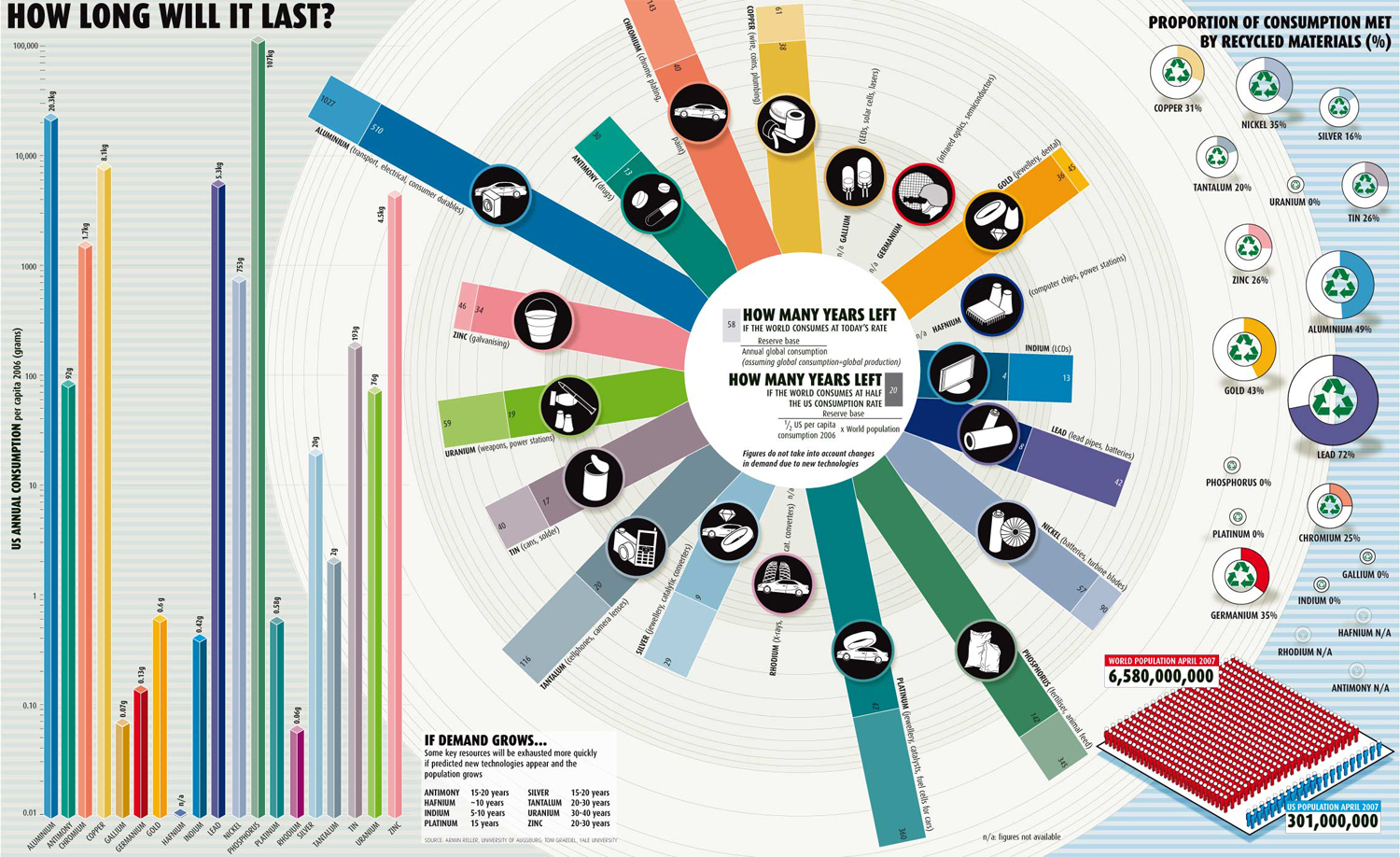
In another example, people trained in the physical sciences tend to dismiss the importance of religious or other belief systems not based on empirical evidence. But anthropologists know that since scientific knowledge still provides a far from complete understanding of the complex systems we live in, nonempirical ‘knowledge’ will always serve social cohesion and psychological integrity by filling the knowledge gap left by science. These are not trivial functions but examples of lessons learned in one field that need to be accepted in others.
In sum, when all fields of inquiry are forced to coexist under the same umbrella, assumptions dear to separate disciplines will be exposed to healthy reexamination. While the ecological worldview threatens embedded disciplinary vested interests, we should see such threats as delivering benefits. As Thomas Kuhn made clear in The Structure of Scientific Revolutions, such a paradigm shift is always painful, but when a worldview no longer makes sense of what we presently know, it is time for a new one. However, as Kuhn also said, when a new framework for inquiry becomes necessary, the old one is not completely rejected; much of it is often subsumed within and adapted to the new way of doing science. Thus the systems approach to problems of science does not reject reductive ‘lab science’ methods. Instead of loose canons spawning destructive technologies, they are tamed as tools in the greater goal of studying problems in their appropriate systems context.
Systems thinking is the new scientific paradigm. Already it includes a well-developed theoretical framework of concepts that can guide and sharpen practice. As a formal meta-discipline it is known as complexity or systems science. In ecology it is known as systems ecology, pioneered by the Odum brothers and their intellectual progeny: C. S. Holling, L. H. Gunderson, Charles Hall and many others. Hopefully it will spread fast enough to save the resource base of human civilization from its destruction by the technological products of the old reductivist way of doing science.
[i] Regarding the raw materials consumption/depletion chart, the question, “How many years left?” is misleading in the extreme. As with the question of oil reserves, the depletion of any finite resource begins to negatively affect our economy long before affordably accessible reserves are gone. The effects of the peak oil have been felt in the US since domestic production peaked in 1970. Now that US imperial power is in decline and the US must compete for raw materials on a more level playing field, its economy feels the consequences of rising mineral scarcity even before global production peaks. This is the case with a number of materials in the chart, like copper, phosphorus and coal. The reason is that because the easiest material is extracted first, scarcity caused by rising costs of extraction occurs before the production peak. The costs are not only rising, but rising at an accelerating rate, revealing that their cost/scarcity is currently driven by a positive feedback loop.
|
|
|||
Topics: Core Ideas, Social Futures, Peak Oil, Relocalization, Systems Thinking Tools, Uncategorized | 2 Comments » |
